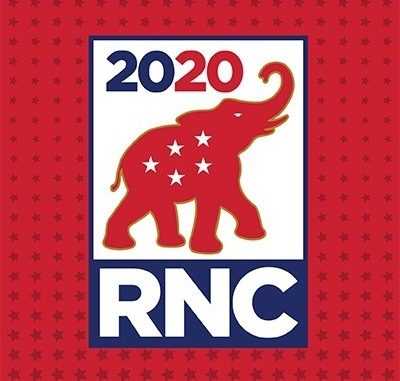
CHARLOTTE — The 2020 Republican National Convention has submitted a comprehensive health and safety plan to North Carolina state officials.
The health and safety plan submitted on Aug. 3 covers both the Republican National Convention (RNC) Business meeting Aug. 21 – 23 and the convention business to be held on Aug. 24. The plan was submitted by the Committee on Arrangements (COA) and includes the current restrictions and protocols being employed in North Carolina.
A total of 336 delegates are expected to attend and will be required to follow the health and safety plan. Staff, vendors and any other individuals in attendance will also be required to adhere to the plan.
Dr. Jeffrey W. Runge, (pronounced Run-ghee) is the COA’s Senior Advisor for Health and Safety Planning. He tells North State Journal his team has been working continually on the health and safety plan with local officials including Charlotte Emergency Management, the Mecklenburg Public Health Department and two major hospital systems in the Charlotte area. Runge confirmed that Dr. Tilson of the N.C. Department of Health and Human Services has also been involved in the process.
“No one who is staging this event or any other event for either political party wants to stage a spreader event,” said Runge.
Runge, who was brought onto the COA team in May, is a board-certified physician in emergency medicine with 35 years of experience, including extensive medical and risk management background.
“It’s risky to bring people together because of the possibility of transmission, so you have to layer in mitigation steps,” Runge said. “We’re never going to have a risk free event, but we’ve gotten to the point now where, by any classifier, and along with the mitigation steps we are going to take, this is a low-risk event.”
The health and safety plan’s mitigation steps include frequent communications with attendees and requiring they be tested for COVID-19 prior to and again upon arrival in Charlotte.
“We’ve selected a test that uses state of the art technology. It uses the same methodology as the tests you would get in your doctor’s office or the hospital,” said Runge.
When asked about the reliability of the tests being, Runge said he is not worried about false negatives and that all the testing will be done by RT-PCR, which stands for “real-time polymerase chain reaction.” RT-PCR is a method used for detecting specific genetic material in a pathogen or in a virus.
Runge said pre-arrival COVID-19 tests are already being conducted and attendees would be asked to self-isolate before and after that test to reduce possible exposure. He also said that attendees will be tested again upon arrival to make sure “nobody slipped through the cracks.”
“We really are creating a COVID-free cohort coming in from the 50 states and territories,” Runge said. He added that anyone working the venues and staff was also being tested by the two Charlotte-area health systems.
After delegates leave, Runge said that they will be reassessed at intervals of five, 14 and 21 days.
While at the RNC events, there will be daily symptoms and temperature checks. Social distancing will be observed at all times and face coverings and masks are required. PPE will be provided to participants in accordance with local and state regulations.
The RNC will have on-site health professionals to respond to any health or medical issues and as circumstances change, so may the plan.
“We named this plan ‘final’ but there is no plan that is final when you are dealing with a rapidly changing environment,” said Runge. He added that while their planning cell was in implementation mode, they would be revisiting the plan daily in order to make any needed adjustments.



